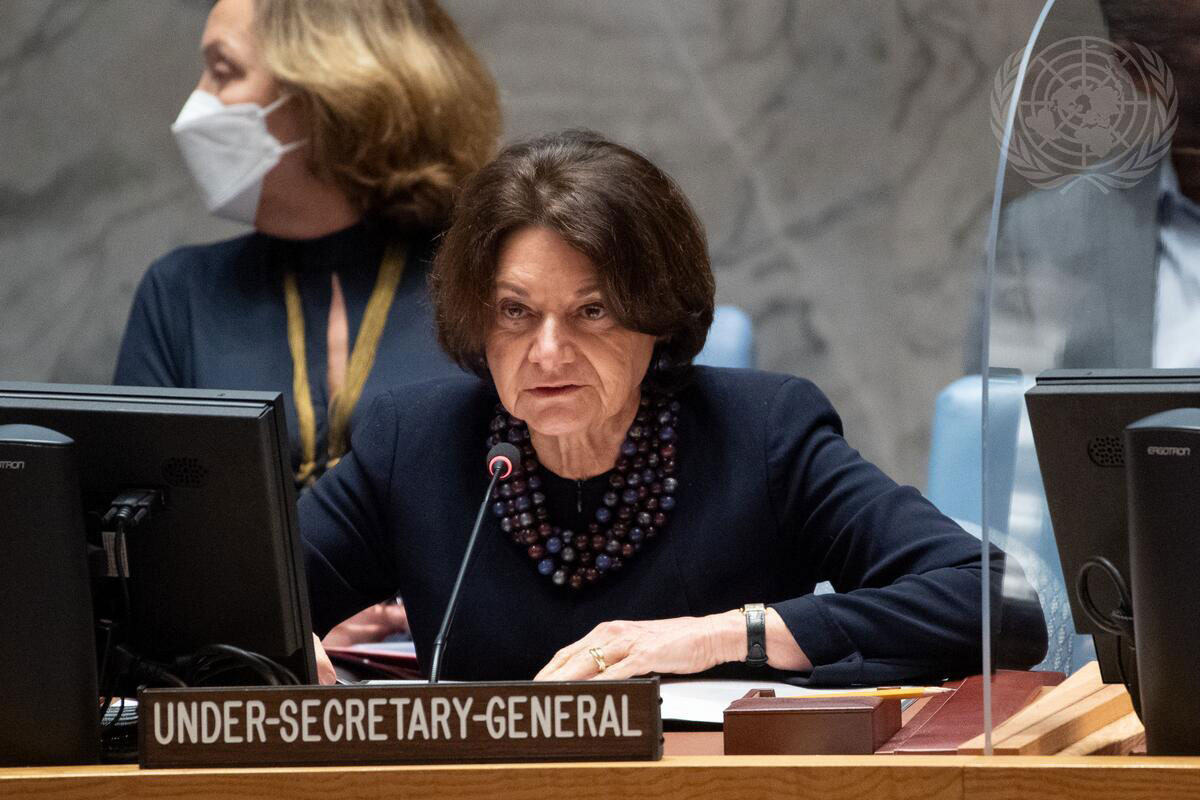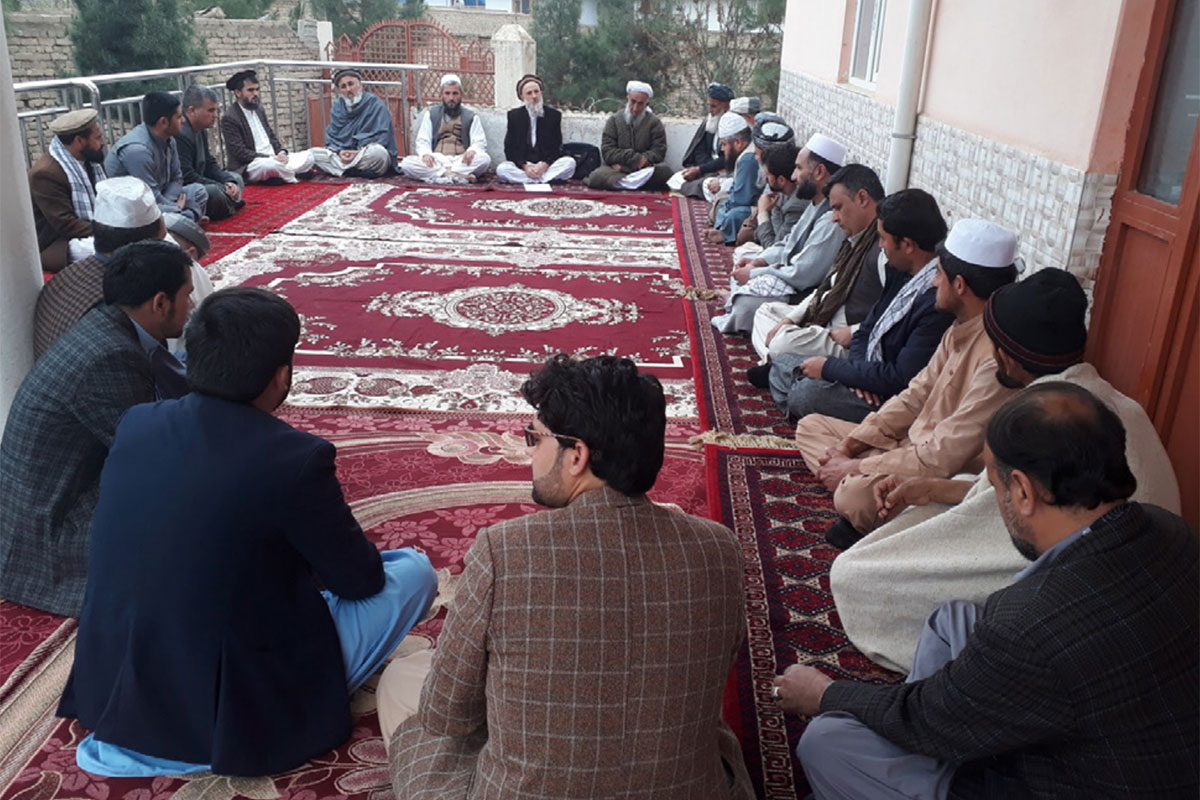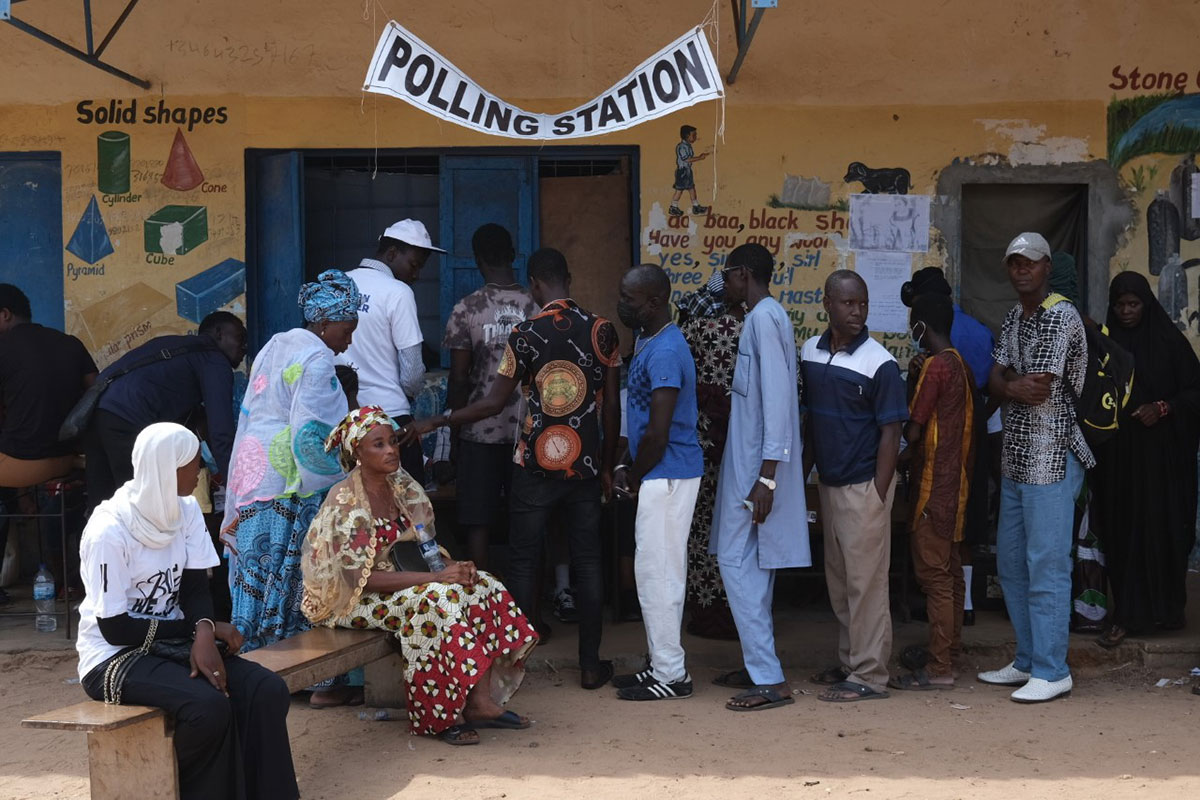Security Council Briefing on Ukraine by Under-Secretary-General for Political and Peacebuilding Affairs Rosemary DiCarlo
Madam President,
Since I last briefed this Council on 17 March, the security situation in Ukraine has seriously deteriorated. The number of Ukrainian civilians killed has more than doubled. Ukrainian cities continue to be mercilessly pounded, often indiscriminately, by heavy artillery and aerial bombardments.
And hundreds of thousands of people, including children, the elderly and the disabled, remain trapped in encircled areas under nightmarish conditions. The devastation wrought on Mariupol and other Ukrainian cities is one of the shameful hallmarks of this senseless war.
The horror deepened this past weekend, as shocking images emerged of dead civilians, some with hands bound, lying in the streets of Bucha, the town near Kyiv formerly held by Russian forces. Many bodies were also found in a mass grave in the same locality.
Reports by non-governmental organizations and media also allege summary executions of civilians, rape and looting in the Chernihiv, Kharkiv and Kyiv regions.
Madam President,
Away from the fighting, diplomatic efforts to end this war, including direct talks between Ukrainian and Russian representatives, have continued. We commend the Government of Turkey for hosting these discussions, as well as the efforts of many others engaging with Russia and Ukraine to help bring about peace.
We welcome the willingness of the sides to continue engaging to reach a mutual understanding. This requires good faith and earnest efforts. Any progress in the negotiations should be translated quickly into action on the ground.
While there has been a reported reduction of Russian troops and attacks around Kyiv and Chernihiv, such moves should not be merely tactical, repositioning forces for renewed attacks on Ukrainian cities and towns elsewhere. The General Assembly has twice called for Russian forces to withdraw entirely from Ukrainian territory and cease all military operations.
We also take note of the reported withdrawal of Russian forces from around the Chernobyl nuclear site. The International Atomic Energy Agency reports that this development will hopefully allow it to conduct an assistance and support mission to provide technical advice and to deliver equipment, where necessary, as soon as possible.
All nuclear sites in Ukraine must be fully protected and secured. Military operations in or around these locations must be avoided.
Madam President,
The numbers tell a tragic, if yet incomplete, story. According to the Office of the High Commissioner for Human Rights, at least 1,480 civilians have been killed and at least 2,195 injured between 24 February and 4 April 2022. OHCHR believes that the actual figures are considerably higher.
We are gravely concerned by the persistent use of explosive weapons with a wide impact area in or near populated areas. Such weapons are causing most civilian casualties as well as massive destruction of civilian infrastructure, including residential buildings, hospitals, schools, water stations and electricity systems.
OHCHR has received credible allegations that Russian forces have used cluster munitions in populated areas at least 24 times. Allegations that Ukrainian forces have used such weapons are also being investigated.
As noted by the High Commissioner, indiscriminate attacks are prohibited under international humanitarian law and may amount to war crimes. The massive destruction of civilian objects and the high number of civilian casualties strongly indicate that the fundamental principles of distinction, proportionality and precaution have not been sufficiently adhered to.
In besieged cities, a significant increase in mortality rates among civilians can also be attributed to the disruption of medical care and basic services. People with disabilities and the elderly are particularly vulnerable. As of 4 April 2022, the World Health Organization has reported a total of 85 attacks on health care facilities resulting in at least 72 fatalities and 43 injuries.
Madam President,
We are seriously concerned about reports of cases of arbitrary arrests and enforced disappearances of persons who have been vocal against the Russian invasion.
As of 30 March, OHCHR has documented the arbitrary detention and possible enforced disappearance of 22 journalists and civil society members in Kyiv, Kherson, Luhansk, and Zaporizhzhia regions. 24 local officials have also been detained in regions under Russian control, 13 of whom have been subsequently released.
We call for the immediate release of all individuals who have been arbitrarily detained, including journalists, local officials, civil society activists and others.
Also as of 30 March, OHCHR has recorded seven journalists and media workers killed since hostilities began. Another 15 have come under armed attack, nine of whom were injured.
Allegations of conflict-related sexual violence perpetrated by Russian forces have also emerged. These include gang rape and rapes in front of children.
There are also claims of sexual violence by Ukrainian forces and civil defense militias. The UN Human Rights Monitoring Mission in Ukraine continues to seek to verify all these allegations.
We are also concerned about disturbing videos depicting abuse of prisoners of war on both sides. All prisoners of war must be treated with dignity and full respect for their rights in accordance with international humanitarian law.
Madam President,
The many credible allegations of serious violations of international humanitarian law and international human rights law, from areas recently retaken from Russian forces, must not go unanswered.
We support efforts to examine these allegations and to gather evidence. Ensuring accountability and justice for acts committed during the war will not be easy, but it is essential.
Madam President,
We are heartened by the generosity of neighboring countries who have accepted millions of refugees and the solidarity of Ukrainian people, who are hosting their displaced compatriots.
With more than 10 million people displaced either within Ukraine or abroad as refugees—or roughly one-quarter of the population -- the United Nations is gravely concerned about the heightened risk of human trafficking.
Indeed, suspected and verified cases of human trafficking are surfacing in the surrounding countries, according to the International Organization for Migration.
Madam President,
This war is devastating Ukraine now, but it also threatens its future. Early assessment projections by UNDP suggest that if the war continues through 2022, Ukraine faces the prospect of seeing 18 years of socio-economic progress lost.
This would set the country – and the region – back decades and leave deep long-term social and economic fissures.
UN agencies, including UNDP, are working to help preserve Ukraine’s hard-won development gains. This involves supporting the Government to sustain essential governance structures and basic services, including emergency measures to sustain livelihoods, such as cash-based assistance.
Madam President,
The war in Ukraine has damaged Europe’s security architecture. Its economic repercussions are already evident far from the battlefield. The longer the war continues, the greater the risk that it will further weaken the global institutions and mechanisms dedicated to preserve peace and security.
The war was started by choice. There is no inevitability to it or to the suffering it is causing. The United Nations is ready to do everything within its means to help bring an end to it.
Thank you, Madam President.














